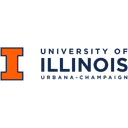Explore comprehensive auditing methodologies and risk evaluation techniques to enhance the effectiveness of modern financial assurance services.
Explore comprehensive auditing methodologies and risk evaluation techniques to enhance the effectiveness of modern financial assurance services.
This course provides an intensive, applied introduction to auditing practices, focusing on a conceptual framework for assessing, evaluating, and managing audit risks and evidence. Students will explore strategic systems auditing, evidence triangulation, internal controls, sampling techniques, and fraud risk assessment. The curriculum covers advanced topics such as attribute and unit sampling, strategic analysis of business processes, and the application of professional skepticism in fraud detection. Through a combination of theoretical concepts and practical examples, learners will develop the skills necessary to conduct thorough and effective audits in various business contexts.
4.8
(225 ratings)
22,369 already enrolled
Instructors:
English
21 languages available
What you'll learn
Apply strategic systems auditing approach to assess business risks
Utilize evidence triangulation techniques to verify management assertions
Evaluate and test internal control systems in various business contexts
Implement attribute and unit sampling methods for audit evidence collection
Assess fraud risks using advanced risk assessment techniques
Apply professional skepticism in audit planning and execution
Skills you'll gain
This course includes:
5.2 Hours PreRecorded video
35 quizzes, 1 peer review assignment
Access on Mobile, Tablet, Desktop
FullTime access
Shareable certificate
Closed caption
Get a Completion Certificate
Share your certificate with prospective employers and your professional network on LinkedIn.
Created by
Provided by

Top companies offer this course to their employees
Top companies provide this course to enhance their employees' skills, ensuring they excel in handling complex projects and drive organizational success.





There are 9 modules in this course
This course builds upon the foundations of auditing, providing an in-depth exploration of advanced auditing practices and risk assessment strategies. The curriculum is structured into nine comprehensive modules, covering topics such as strategic systems auditing, evidence triangulation, internal controls, significant business processes, sampling techniques, and fraud risk assessment. Students will learn to apply a conceptual framework for assessing and managing audit risks, with a focus on practical applications in real-world scenarios. The course emphasizes the importance of professional skepticism and wise thinking in conducting effective audits. Through a combination of video lectures, case studies, quizzes, and a peer review assignment, learners will develop advanced skills in audit planning, execution, and reporting, preparing them for the complexities of modern auditing practices.
About the Course
Module 1 · 1 Hours to complete
Strategic Analysis of a Client and Its Business Processes
Module 2 · 1 Hours to complete
Audit Evidence and Triangulation
Module 3 · 4 Hours to complete
Strategic Systems Auditing and Internal Controls
Module 4 · 1 Hours to complete
Interpreting Evidence and Significant Business Processes
Module 5 · 1 Hours to complete
Verification of Management Assertions I: Attribute Sampling
Module 6 · 2 Hours to complete
Verification of Management Assertions II: Unit Sampling
Module 7 · 3 Hours to complete
Fraud Risk Assessment
Module 8 · 3 Hours to complete
Completing the Attest Engagement
Module 9 · 2 Hours to complete
Fee Structure
Payment options
Financial Aid
Instructor
Leader in Accountancy Education and Research
Dr. Mark E. Peecher is the Executive Associate Dean of Faculty and Research and the Deloitte Professor of Accountancy at the University of Illinois Urbana-Champaign, where he has significantly influenced the field of accountancy through both his teaching and research. With a Ph.D. in Accountancy from the same institution, Dr. Peecher specializes in auditors' decision-making processes and the implications of audit practices on financial reporting quality. His extensive academic career includes roles such as Associate Dean of Faculty and Director of the Ph.D. Program in Accountancy, where he has fostered a rigorous academic environment for future scholars. Dr. Peecher's research contributions are widely recognized, with numerous publications in prestigious journals that explore topics such as audit litigation outcomes and proactive auditing behaviors. His expertise not only enriches the academic community but also informs best practices in the accounting profession, making him a vital figure in advancing the understanding of financial accountability and transparency.
Testimonials
Testimonials and success stories are a testament to the quality of this program and its impact on your career and learning journey. Be the first to help others make an informed decision by sharing your review of the course.
Frequently asked questions
Below are some of the most commonly asked questions about this course. We aim to provide clear and concise answers to help you better understand the course content, structure, and any other relevant information. If you have any additional questions or if your question is not listed here, please don't hesitate to reach out to our support team for further assistance.



